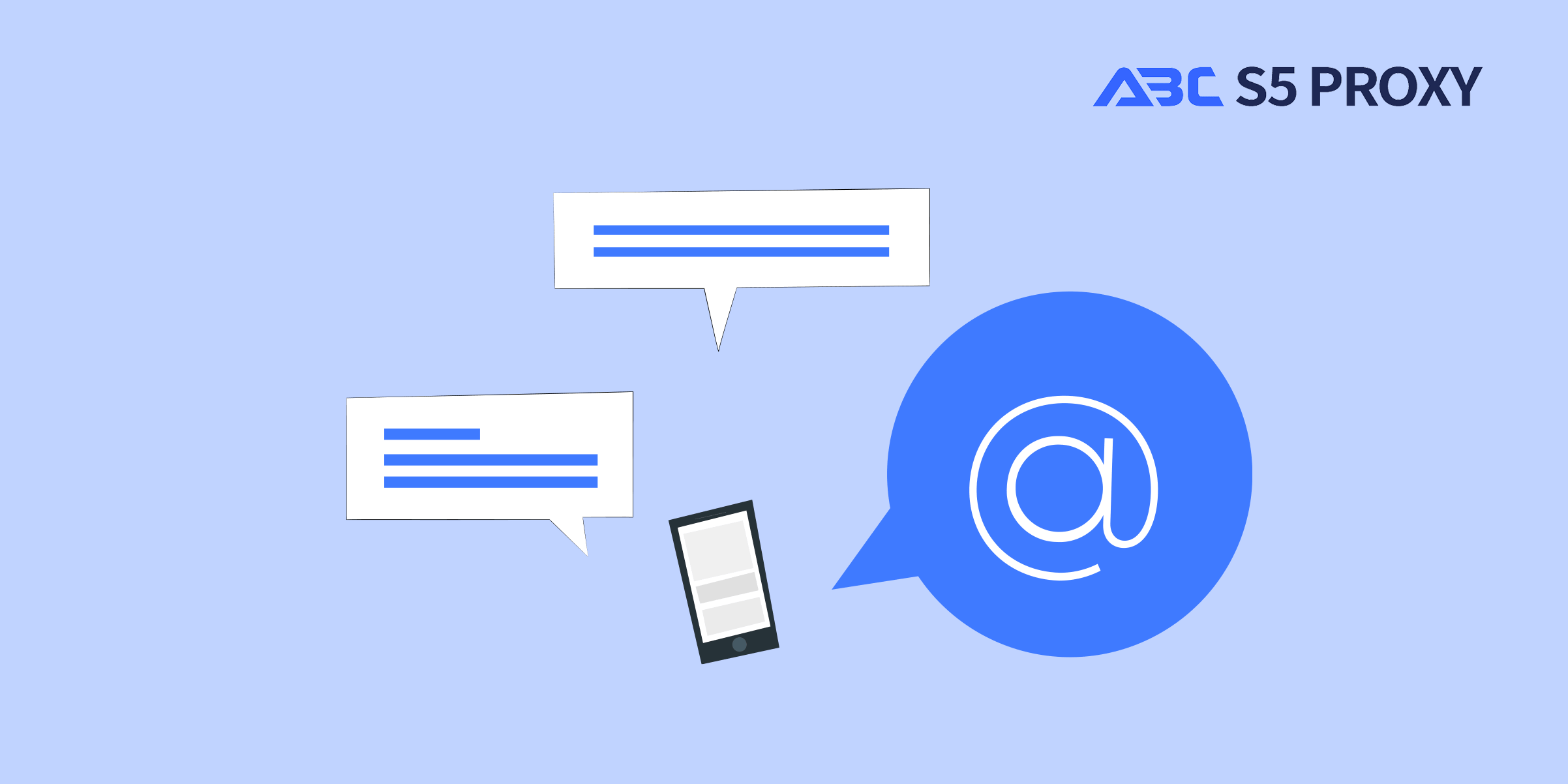Residential Proxies
Allowlisted 200M+ IPs from real ISP. Managed/obtained proxies via dashboard.

Proxies Services
Residential Proxies
Allowlisted 200M+ IPs from real ISP. Managed/obtained proxies via dashboard.
Residential (Socks5) Proxies
Over 200 million real IPs in 190+ locations,
Unlimited Residential Proxies
Unlimited use of IP and Traffic, AI Intelligent Rotating Residential Proxies
Static Residential proxies
Long-lasting dedicated proxy, non-rotating residential proxy
Dedicated Datacenter Proxies
Use stable, fast, and furious 700K+ datacenter IPs worldwide.
Mobile Proxies
Dive into a 10M+ ethically-sourced mobile lP pool with 160+ locations and 700+ ASNs.
Scrapers
Collection of public structured data from all websites
Proxies
Residential Proxies
Allowlisted 200M+ IPs from real ISP. Managed/obtained proxies via dashboard.
Starts from
$0.77/ GB
Residential (Socks5) Proxies
Over 200 million real IPs in 190+ locations,
Starts from
$0.045/ IP
Unlimited Residential Proxies
Unlimited use of IP and Traffic, AI Intelligent Rotating Residential Proxies
Starts from
$1816/ MONTH
Rotating ISP Proxies
ABCProxy's Rotating ISP Proxies guarantee long session time.
Starts from
$0.4/ GB
Static Residential proxies
Long-lasting dedicated proxy, non-rotating residential proxy
Starts from
$4.5/MONTH
Dedicated Datacenter Proxies
Use stable, fast, and furious 700K+ datacenter IPs worldwide.
Starts from
$4.5/MONTH
Mobile Proxies
Allowlisted 200M+ IPs from real ISP. Managed/obtained proxies via dashboard.
Starts from
$1.2/ GB
Scrapers
Web Unblocker
Simulate real user behavior to over-come anti-bot detection
Starts from
$1.2/GB
Serp API
Get real-time search engine data With SERP API
Starts from
$0.3/1K results
Video Downloader
Fully automated download of video and audio data.
Starts from
$0.07/GB
Scraping Browser
Scale scraping browsers with built-inunblocking and hosting
Starts from
$2.5/GB
Documentation
All features, parameters, and integration details, backed by code samples in every coding language.
TOOLS
Resources
Addons
ABCProxy Extension for Chrome
Free Chrome proxy manager extension that works with any proxy provider.
ABCProxy Extension for Firefox
Free Firefox proxy manager extension that works with any proxy provider.
Proxy Manager
Manage all proxies using APM interface
Proxy Checker
Free online proxy checker analyzing health, type, and country.
Proxies
AI Developmen
Acquire large-scale multimodal web data for machine learning
Sales & E-commerce
Collect pricing data on every product acrossthe web to get and maintain a competitive advantage
Threat Intelligence
Get real-time data and access multiple geo-locations around the world.
Copyright Infringement Monitoring
Find and gather all the evidence to stop copyright infringements.
Social Media for Marketing
Dominate your industry space on social media with smarter campaigns, anticipate the next big trends
Travel Fare Aggregation
Get real-time data and access multiple geo-locations around the world.
By Use Case
English
繁體中文
Русский
Indonesia
Português
Español
بالعربية

CAPTCHAs, short for Completely Automated Public Turing test to tell Computers and Humans Apart, are tools used in computing to determine whether a user is a human or a bot. They are designed to prevent automated software (bots) from performing actions that should be done by humans, such as creating accounts, sending spam emails, or conducting fraudulent activities.
CAPTCHA stands for Completely Automated Public Turing test to tell Computers and Humans Apart. Developed as a way to verify that a user is human, CAPTCHAs are commonly encountered when performing actions like logging in, registering for accounts, or submitting forms online. They come in various forms, including distorted text, images, audio clips, or interactive challenges that require human-level cognitive abilities to solve.
The core principle behind CAPTCHAs is to present a task that is relatively easy for humans to perform but difficult or impossible for automated systems. This is based on the fundamental difference in cognitive abilities between humans and computers. Here's a breakdown of how CAPTCHAs work:
Presenting the Challenge: When a user attempts to perform an action that requires verification, the system presents a CAPTCHA challenge. This can be in the form of distorted text, a series of images to select from, or an interactive task.
Human Interaction: The user must then interact with the CAPTCHA by reading distorted text, selecting relevant images, or performing a specific action. This process requires human cognitive abilities like pattern recognition, visual processing, and logical reasoning.
Validation: After the user submits their response, the system validates it against a predefined set of rules or algorithms. If the response is deemed correct, the user is considered human and the action is allowed to proceed.
Bot Prevention: By making it difficult for bots to solve CAPTCHAs, the system effectively prevents automated attacks, spam, and abuse. Bots are unable to accurately recognize distorted text or images, making it impossible for them to pass the CAPTCHA challenge.
Over time, CAPTCHAs have evolved to include various types and formats, each designed to overcome specific challenges and improve user experience. Some of the most common types include:
Text-based CAPTCHAs: These involve distorted letters and numbers that users must type into a text box. They are relatively easy for humans to solve but challenging for bots.
Image-based CAPTCHAs: Users are presented with a series of images and asked to select those that match a specific criteria or theme. This type of CAPTCHA leverages human pattern recognition abilities.
Audio CAPTCHAs: For visually impaired users, audio CAPTCHAs play a series of distorted numbers or words that users must listen to and type out.
Interactive CAPTCHAs: Modern CAPTCHAs, like Google's reCAPTCHA, are often interactive. Users may be asked to click on specific areas of an image, drag a slider, or solve a simple math problem. These CAPTCHAs analyze user behavior to verify their authenticity.
CAPTCHAs play a crucial role in maintaining the security and integrity of websites and applications. They:
Prevent automated attacks: By making it difficult for bots to bypass verification, CAPTCHAs reduce the risk of automated spam, phishing attempts, and distributed denial-of-service (DDoS) attacks.
Protect user data: By ensuring that only human users can access sensitive or private information, CAPTCHAs help protect user data from theft and misuse.
Maintain fairness: In situations where resources are limited, like ticket sales or online polls, CAPTCHAs prevent bots from abusing the system and ensure fairness for all users.
While CAPTCHAs are effective in preventing automated attacks, they are not without limitations. Some users, particularly those with visual impairments, may find them challenging or inaccessible. Additionally, sophisticated bots and machine learning algorithms are continually evolving, making it harder for CAPTCHAs to maintain their effectiveness.
In conclusion, CAPTCHAs play a crucial role in maintaining the security and integrity of online platforms by differentiating between human users and automated bots. While they may sometimes be frustrating for users, they are essential in preventing spam, fraud, and other malicious activities on the internet. As technology continues to evolve, CAPTCHAs will likely continue to evolve as well to stay ahead of the ever-changing landscape of cyber threats.
Featured Posts
Popular Products
Residential Proxies
Allowlisted 200M+ IPs from real ISP. Managed/obtained proxies via dashboard.
Residential (Socks5) Proxies
Over 200 million real IPs in 190+ locations,
Unlimited Residential Proxies
Use stable, fast, and furious 700K+ datacenter IPs worldwide.
Rotating ISP Proxies
ABCProxy's Rotating ISP Proxies guarantee long session time.
Residential (Socks5) Proxies
Long-lasting dedicated proxy, non-rotating residential proxy
Dedicated Datacenter Proxies
Use stable, fast, and furious 700K+ datacenter IPs worldwide.
Web Unblocker
View content as a real user with the help of ABC proxy's dynamic fingerprinting technology.
Related articles

Essential for Amazon Competitor Analysis: ABCproxy + Amazon Scraper for Efficient Product/Review Data Collection
When it comes to Amazon competitor analysis, using ABCproxy + Amazon Scraper is essential for efficient product and review data collection. Stay ahead of the competition with this powerful combination!